Airbus will conduct multiple test flights using 100% Sustainable Aviation Fuels (SAF) using its single-aisle aircraft, at the end of 2021.
Airbus is part of a partnership, that will use 100% SAF for flights in single-aisle aircraft. The project is called VOLCAN, for “Vol avec Carburants Alternatifs Nouveaux”. This translates as “flight with new alternative combustible fuels”. The project is a partnership with several French actors: Airbus, Safran, Dassault Aviation and ONERA. The French Ministry of Transport is also participating, making this project a part of the French Government’s aviation recovery plan.
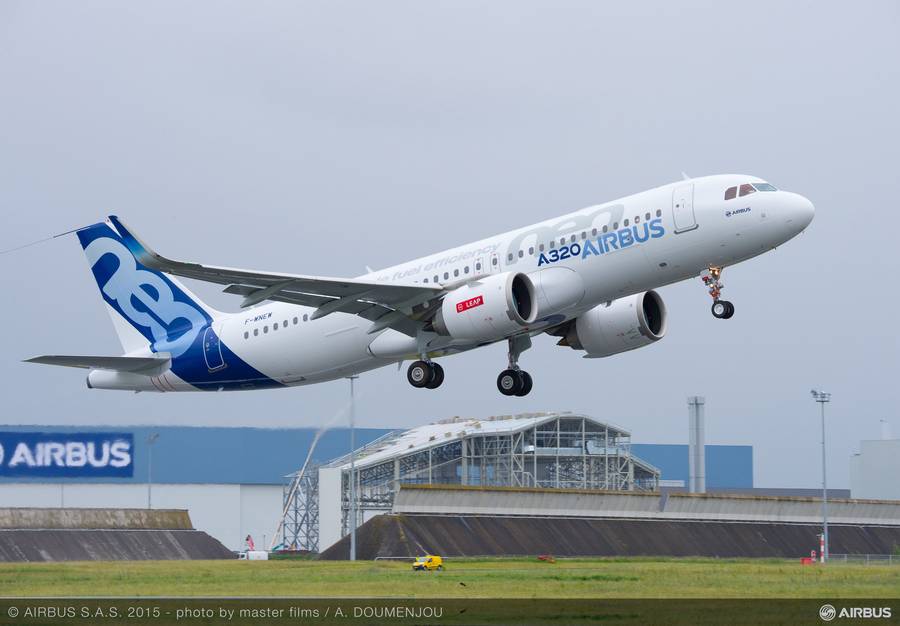
The aim of Airbus and its partners is to study the use of 100% SAF for commercial flights. They want to see the effects it has in engines and other aircraft systems. Ultimately, the goal is to certify the use of 100% (i.e. unblended) sustainable aviation fuels. Airbus has already conducted such flights with 100% SAF in an A350 widebody. However, Boeing beat them to it by several years, with such flights in 777 and 787 aircraft. Airbus’ new flights will involve an A320neo.
100% SAF For Multiple Airbus Flights
This project should become a more complete, targeted effort towards usage of alternative fuels. As we saw, despite their continued support for hydrogen, Airbus feel its widespread usage is still a long way away. SAF is already here, but both EASA and the FAA limit its usage to 50%. However, in real terms, the supply and cost of the fuel have a long way to go, before airlines can consider filling their Boeing or Airbus aircraft with 100% SAF. And that’s when it is legal to do so.
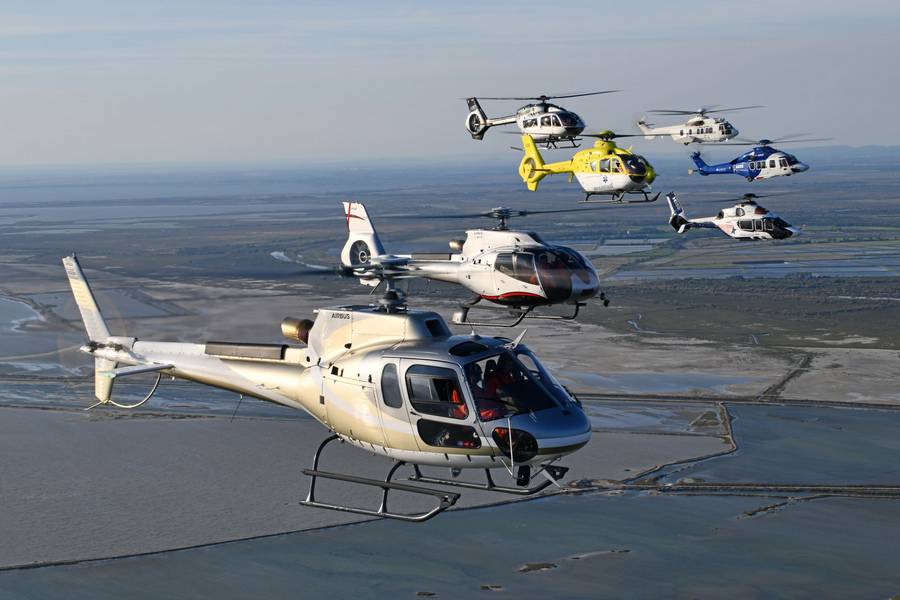
Beyond Airbus’ single and twin-aisle jets, the project also looks at 100% SAF use in business jets and helicopters. Dassault Aviation is the manufacturer of the Falcon family of biz-jets, as well as military aircraft. And of course Airbus now incorporates Airbus Helicopters – formerly Eurocopter. In addition to the VOLCAN project, Airbus Helicopters is part of the ‘SAF User Group’. This also looks at the challenges behind sustainable fuel use, in the industry.
Another partner in the project is TotalEnergies, a fuel supplier. They will provide different types of sustainable fuels for the project. As we have seen, SAF can come from multiple sources. They can be biofuels, from different types of waste or primary crops, or they can be synthesized, using carbon capture. The industry is constantly experimenting with newer processes and sources. Even landfill waste could become such a source.
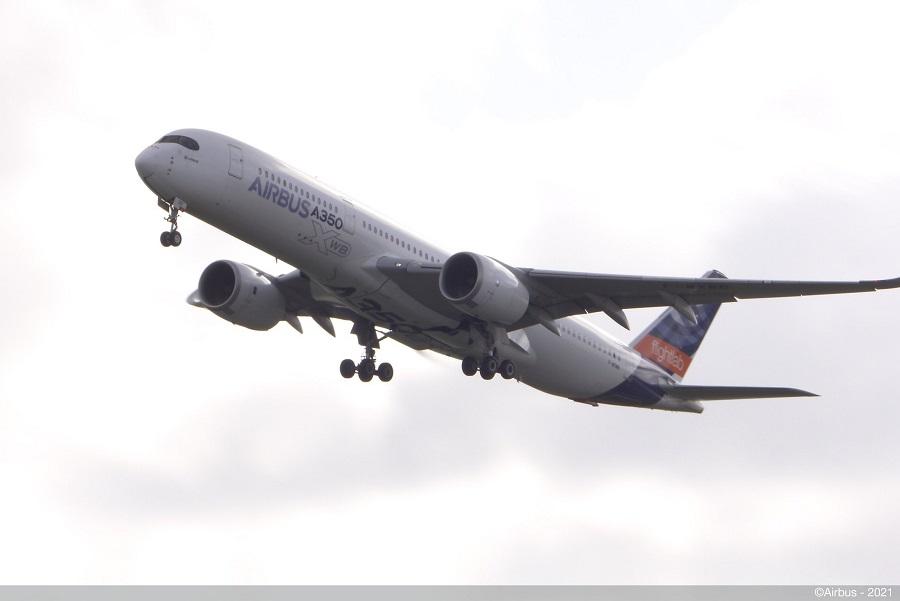
A Large Partnership
Along with Airbus, Safran will have a very large role in testing 100% SAF usage in commercial flights. They will test engine adaptation, in CFM LEAP-1A engines, as well as any adaptations in fuel systems. Airbus will measure emissions and evaluate effects in aircraft performance. ONERA will support both companies in analysing and interpreting test results on emissions and contrails.
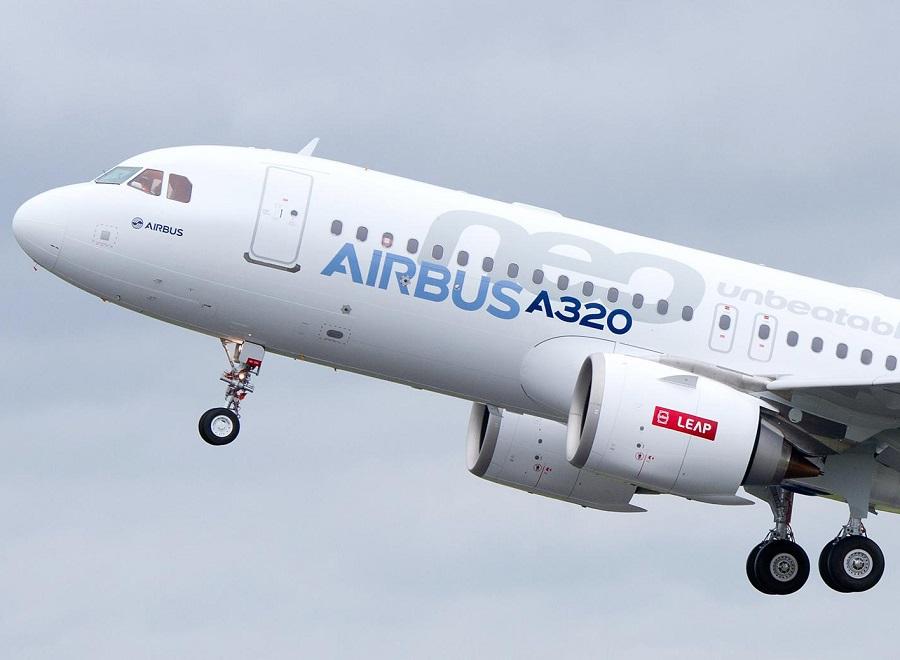
ONERA is the “Office National d’Études et de Recherches Aérospatiales” – or more informally, The French Aerospace Lab. Simply put, it’s France’s NASA. Like their American counterparts, they are a public establishment that carries out practical, application-oriented aerospace research. So they are a leading partner in this drive for certification of 100% SAF flights, in Airbus and other aircraft.
Another challenge for Airbus and its partners, is ensuring that the aviation industry is ready for flights with 100% SAF. Doing so involves many challenges, including the creation of an entirely new, more complicated supply chain.
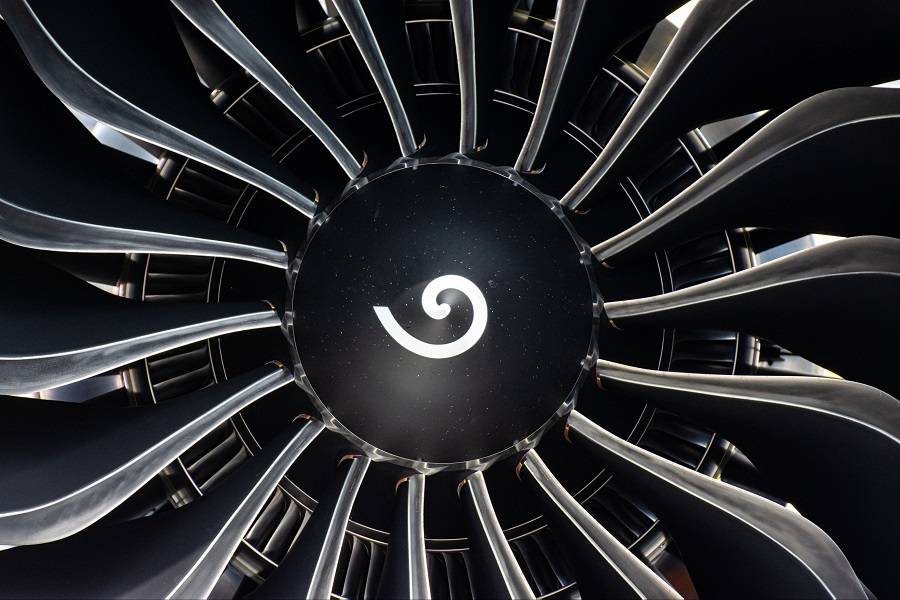
Beyond this, Airbus’ choice for a single-aisle aircraft in these 100% SAF flights is interesting. A simple explanation is that they are the aircraft that Safran makes engines for. Safran of course is a partner with General Electric in CFM. CFM-56 and LEAP-1 engines power all Boeing 737s (apart from the 737-200) and many Airbus A318/319/320/321s.
However, many see long-haul as the real long-term beneficiary of 100% SAF usage. But while Airbus has the promising A321XLR in the works, its 2023 launch date is probably too close, for it to see 100% SAF flights.




1 comment
pat olt
SAF are a great idea: there are 7 billion people on Earth and not enough to eat for everyone and some planet saviours came with no better idea than using crop to produce aviation fuel! Taking into account the quantity of crop needed to produce the huge amount of fuel needed in jet engines and not to mention the use of some agricultural land to install solar panels (while we are not able to stock the little electricity produced), we should start to get used to eating stones!
VOLCAN is a good name for this “project” since we are more and more dancing on a volcano. It will pass but we will have to wait that some idiots disappear …
By the way it’s totally wrong to say that “Airbus now incorporates Airbus Helicopters – formerly Eurocopter”: Airbus Group is not Airbus but just the new name given to EADS (European Aeronautic Defence and Space company) in 2015 and doesn’t mean at all that Airbus (airliners), which is a part of Airbus Group as it was formerly a part of EADS, has incorporated anything.
EADS was composed of Airbus, Eurocopter, Astrium and Cassidian. In the same way, Airbus Group is composed of Airbus (airliners), Airbus Helicopters (ex-Eurocopter) and Airbus Defense and Space (ex Astrium +Cassidian).
However I admit that it can be confusing.